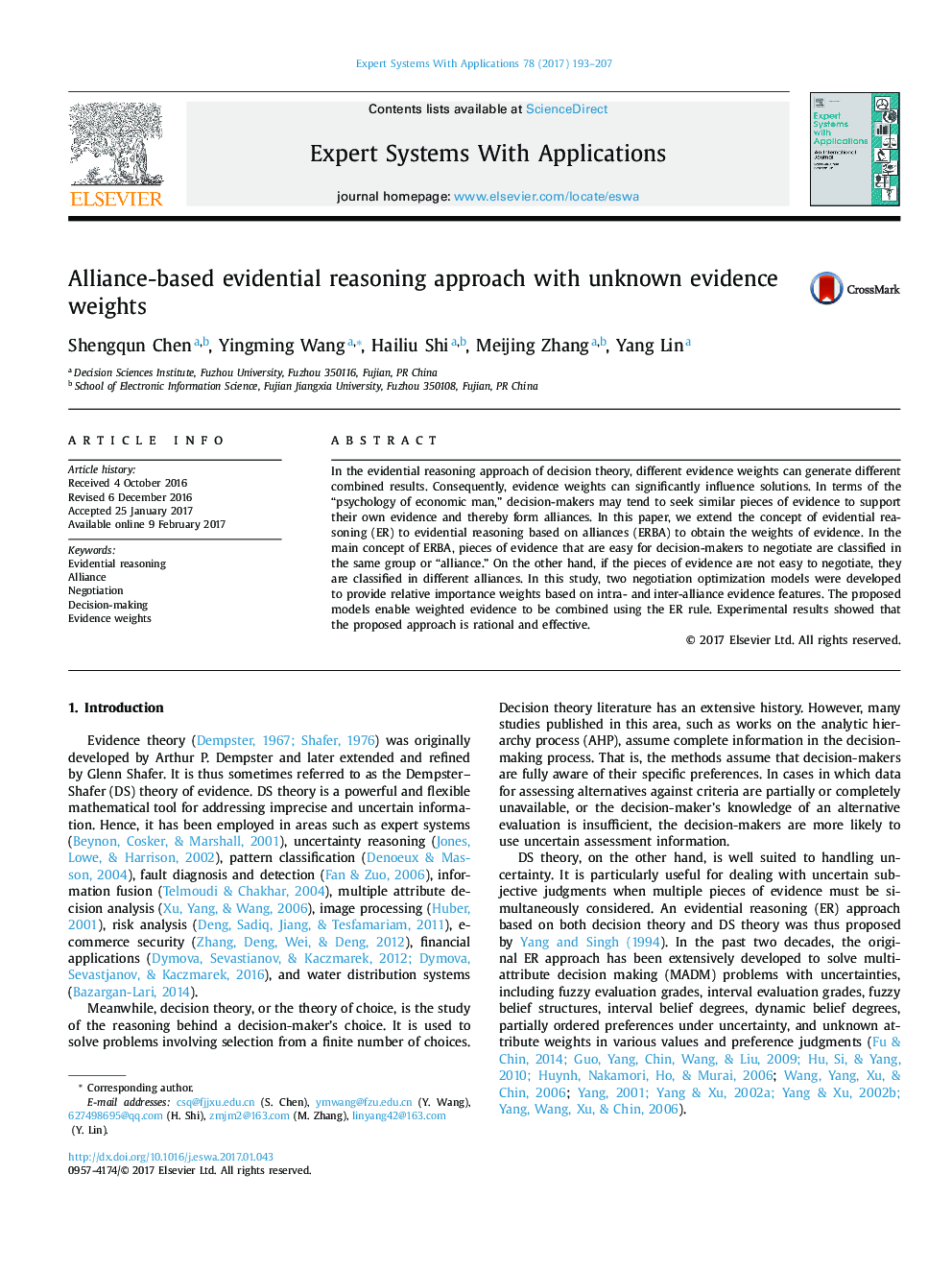| Article ID | Journal | Published Year | Pages | File Type |
|---|---|---|---|---|
| 4943590 | Expert Systems with Applications | 2017 | 15 Pages |
Abstract
In the evidential reasoning approach of decision theory, different evidence weights can generate different combined results. Consequently, evidence weights can significantly influence solutions. In terms of the “psychology of economic man,” decision-makers may tend to seek similar pieces of evidence to support their own evidence and thereby form alliances. In this paper, we extend the concept of evidential reasoning (ER) to evidential reasoning based on alliances (ERBA) to obtain the weights of evidence. In the main concept of ERBA, pieces of evidence that are easy for decision-makers to negotiate are classified in the same group or “alliance.” On the other hand, if the pieces of evidence are not easy to negotiate, they are classified in different alliances. In this study, two negotiation optimization models were developed to provide relative importance weights based on intra- and inter-alliance evidence features. The proposed models enable weighted evidence to be combined using the ER rule. Experimental results showed that the proposed approach is rational and effective.
Related Topics
Physical Sciences and Engineering
Computer Science
Artificial Intelligence
Authors
Chen Shengqun, Wang Yingming, Shi Hailiu, Zhang Meijing, Lin Yang,
